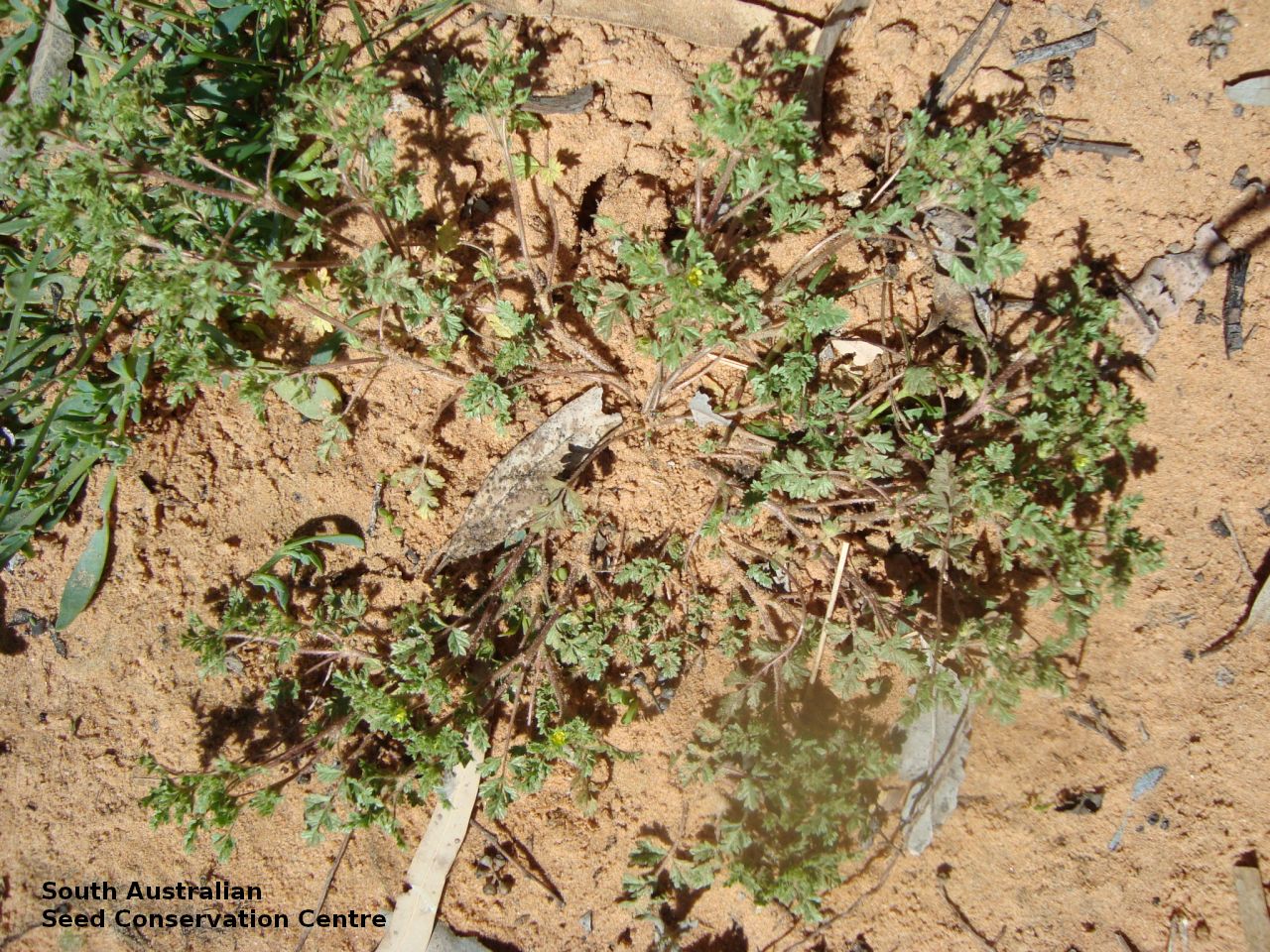
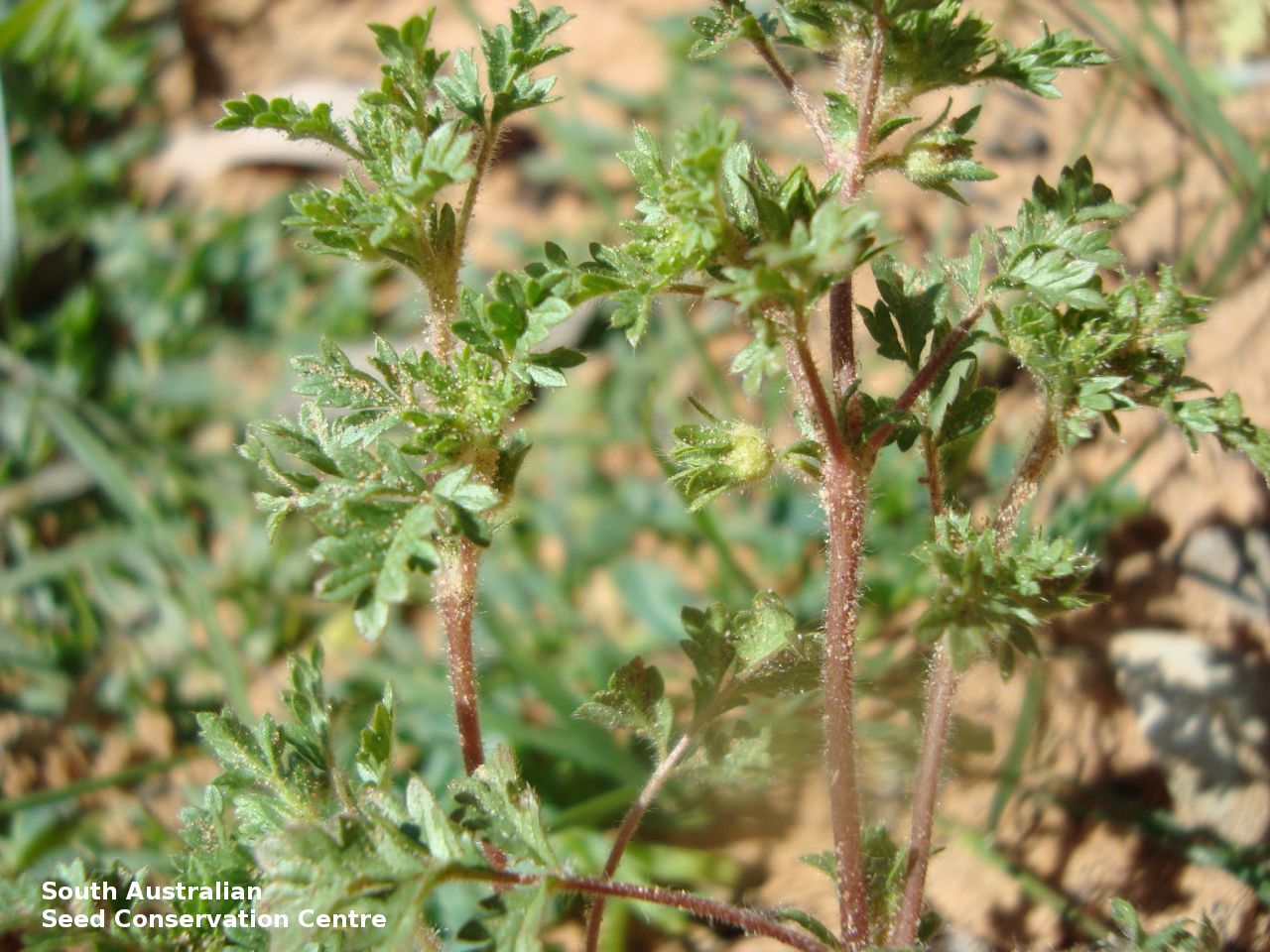
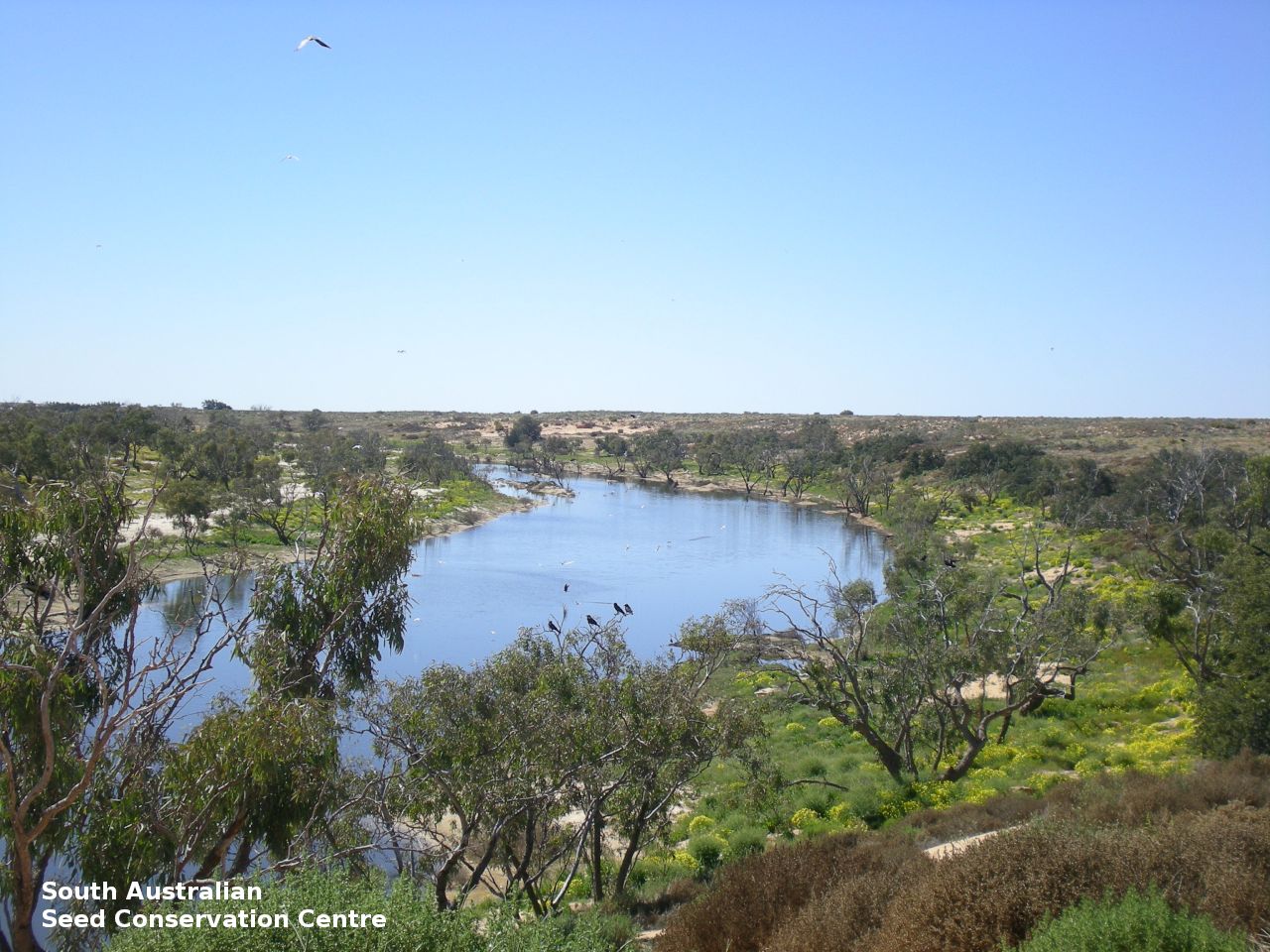
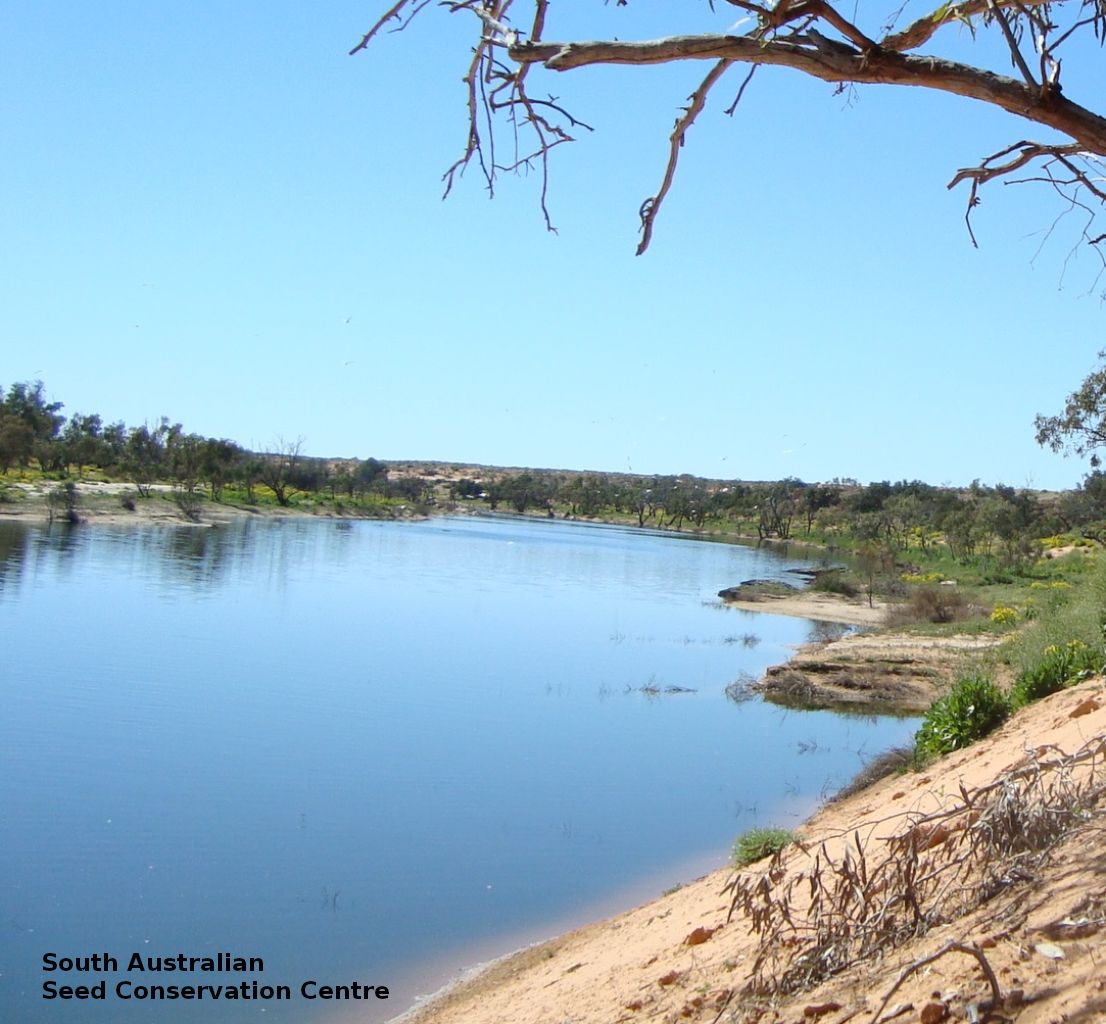
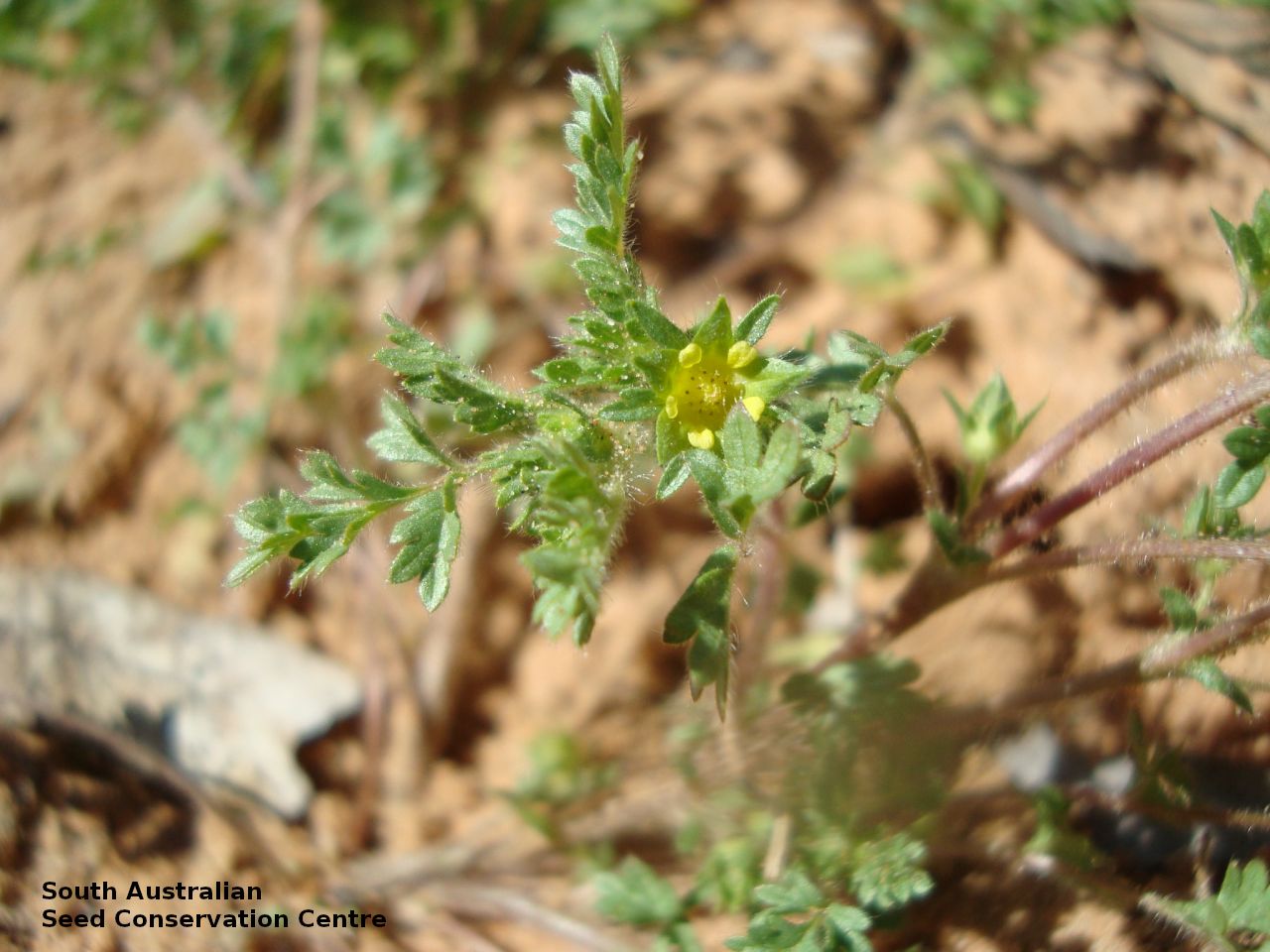




Prior names
Potentilla supina
Common names
Native Cinquefoils
Etymology
Potentilla from the Latin 'potens' meaning powerful; referring to the medicinal or astringent properties of some species. Nanopetala from the Greek 'nanos' meaning a dwarf and 'petalon' meaning petal; referring to the very small petals in this species.
Distribution and status
Only known in South Australia from a few collections along the Strzelecki Creek growing on damp sandy margins of creek and waterholes. Also found in New South Wales. Native. Rare in South Australia. Rare in New South Wales.
Herbarium region: Lake Eyre
AVH map: SA distribution map (external link)
Plant description
Decumbent, suberect or erect annual herb to 20 cm high and 30 cm across, with lobes leaves and small yellow flowers with five petals. Flowering possibly all year dependent on soil moisture. Potentilla nanopetala differs from P. supina (weed species) by having 3 (rarely 5) leaflets (5–11 leaflets for P. supina); petal elliptical to spathulate 1.0–1.2 mm long with obtuse apex (broadly obovate petals 2–3 mm long with emarginate apex for P. supina); and the epicalyx segments shorter than sepals (equal to or longer than sepals for P. supina). Fruits are brown capsule. Seeds are pale brown to black ovoid seed to 0.7 mm long and 0.5 mm diameter, glabrous, with a few conspicuous longitudinal ribs.
Seed collection and propagation
Collect seeds between January and December. Collect capsules that are drying off and turning brown with hard dark seeds inside. Place the capsules in a tray and leave to dry for 1–2 weeks. Then rub the dried plants to dislodge the seeds. Pass the material through a sieve to separate the unwanted material. The finer material will contain both seeds (soft) and frass (hard) usually distinguishable from each other. With finer sieves, the seeds can be separated from the frass but this is not essential for storage or propagation. Store the seeds with a desiccant such as dried silica beads or dry rice, in an air tight container in a cool and dry place.
| Location | No. of seeds (weight grams) | Number of plants | Date collected | Collection number Collection location | Date stored | % Viability | Storage temperature |
|---|---|---|---|---|---|---|---|
| BGA MSB | 289,000 (14.02 g) 289,000 (14.02 g) | 50+ | 23-Oct-2007 | TST205 Lake Eyre | 19-Sep-2008 | 100% | -18°C |
Number of plants: This is the number of plants from which the seeds were collected.
Collection location: The Herbarium of South Australia's region name.
% Viability: Percentage of filled healthy seeds determined by a cut test or x-ray.